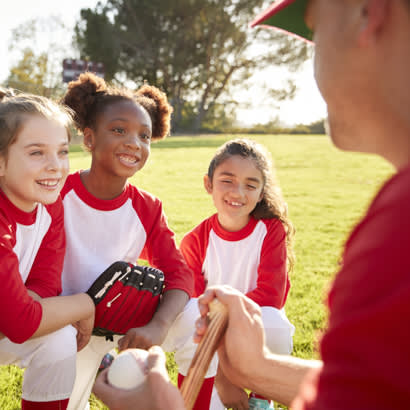
For an enhanced digital experience, read this story in the ezine.
Nationwide there continues to be an enormous amount of gender inequity among competitive youth sports programming hosted by park and recreation departments and programming enabled through public department facilities and resources. For your offerings, it’s important to ask the following:
How many girls are getting the chance to practice and play youth sports compared to boys?
What resources are girls’ teams and girls’ leagues getting compared to boys’ teams/leagues?
If you’re running co-ed programs, are girls a small percentage of those programs? Is co-ed play working for girls, or would they prefer all girls’ teams as well?
What are girls’ experiences overall? Are they getting equal treatment and benefits compared to the boys?
Over the past nearly 20 years of our Fair Play for Girls in Sports project, we have found that girls are getting far too few sports opportunities in leagues and teams run or facilitated by P&R departments across the country. In particular, low-income girls of color lack opportunity, access and equity. In one study we conducted, California park and recreation departments reported girls receiving just one-third of the sports opportunities despite girls’ strong interest in playing sports in greater numbers.
The girls who are playing sports face a host of inequities, including:
Second-rate facilities, such as girls’ teams using shared community fields, while boys’ teams have lengthy leases on premier fields
Fewer and less experienced coaches
Less practice and game time on shared facilities — girls’ teams and leagues get inconvenient time slots or unlighted facilities restricting nighttime play
Publicity, banners and social media feature few, if any, girls, which suppresses girls’ sign-ups and interest
Budget inequities with girls’ teams and leagues having to pay to use public space, whereas boys’ teams have free or low-cost land arrangements
In addition to all the health benefits of athletics, girls who play sports graduate at higher rates from high school and college. Also, laws modeled after the federal Title IX statute requiring gender equity in publicly funded school sports across the country — like California’s AB 2404 (2004) and Washington state’s Fair Play in Community Sports Act (2009) — mandate gender equity in community youth sports in addition to other local, state and federal obligations potentially applicable in your area. Most importantly, creating gender equity in youth sports is the right thing to do.
Five Keys for Ensuring Gender Equity
Here are five key tips for jumpstarting gender equity in your sports programs:
- Count the girls by auditing your department’s programs, including third-party leagues. How many opportunities are girls getting? If it is not comparable to the percentage of female youth residents, increase opportunities. Survey girls regarding what they want to play and learn what barriers exist.
- Assess the amenities of girls’ teams, leagues and player experiences, such as facilities, coaching, budget and advertising, and make adjustments to fix any inequities.
- Recruit and elevate female coaches and administrator role models. Ensuring girls have great female “influencers” helps them “see it, to be it.”
- Feature girls in advertising and social media; host women’s sports watch parties and celebrate your area’s female athletes of all ages.
- Regularly convene a resourced and supported task force of girls’ teams and leagues to find out how and what they need to grow.
All departments and the third-party leagues they host can be gender equitable to ensure all girls can get into the game. Visit fairplayforgirlsinsports.org for more information and to download a model girls’ sports interest survey.
Note, this article does not contain legal advice. Please contact an attorney should you need a legal consult regarding gender inequity in sports.
Kim Turner, J.D., is a Senior Staff Attorney and Director of the Fair Play for Girls in Sports project of Legal Aid at Work, and serves as a Youth Coach in her local community sports programming (kturner@legalaidatwork.org).

